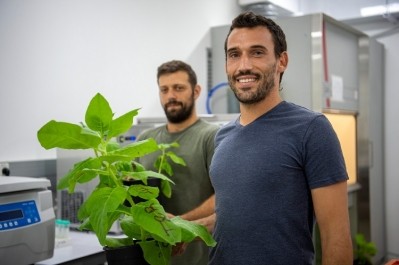Japanese scientists look to create vegetables with anti-inflammatory properties using plant pigments

Betalains are a class of plant pigments responsible for the characteristic red-violet or yellow colour of certain fruits and vegetables.
These naturally occurring, water-soluble, and nitrogen-containing pigments are commonly used as food colouring agents.
Recent research findings have brought to light the strong antioxidant potential of betalains, making them potential candidates to produce health foods and combat various diseases.
Although natural plant sources of betalains such as beetroots exist, these pigments demonstrate poor stability in high temperatures.
At present, betalains are only produced in plants of the order caryophyllales, a diverse and heterogeneous order of flowering plants that includes the cacti, carnations, amaranths, ice plants, beets, and many carnivorous plants and higher fungi. Hence, metabolic engineering has been explored to genetically modify cultivable non-caryophyllales plants, to enhance the production and scalability of these pigments.
Transgenic betalain-accumulating plants have been developed over the years, their applications in producing healthcare food resources are yet to be explored.
To address this gap, the Japanese scientists looked to genetically modify potato and tomato plants to produce betacyanin.
“We successfully engineered potato tubers and tomato fruits to co-express betacyanin biosynthesis genes,” said study Professor Gen-ichiro Arimura from TUS. “This enhanced the endogenous accumulation of betanin and isobetanin—two common types of betacyanin—in these transgenic vegetables. The accumulation of these pigments made them appear dark red in colour upon maturation, as compared to their wild-type counterparts.”
Higher anti-inflammatory activity
The team further tested the therapeutic efficacy of these transgenic vegetables to discover that the extracts of the transgenic tomato fruit exerted higher anti-inflammatory activity compared to their wild-type counterparts.
But while significant anti-inflammatory effects were observed with transgenic tomato extracts, this was not the case with transgenic potatoes, despite substantial production of betanin and isobetanin.
The reason for this is speculated to be the presence of unknown antagonists in transgenic potatoes that work against betacyanin’s anti-inflammatory function, but is yet to be confirmed.
“Tomatoes genetically engineered to produce betacyanins were found to have substantial health promoting effects. Although natural plant sources of betalains such as beetroots exist, these pigments demonstrate poor stability in high temperatures and extreme pH. This indicates that betacyanin producing transgenic tomato lines are more likely to be effective as health foods when ingested in their raw state,” summarizes Prof Arimura.
What are the potential applications of these findings? He further adds, “Although there is no commercial cultivation of edible genetically modified crops in Japan,” said Prof Arimura, “we expect that their applications as health foods through production in enclosed plant factories and other facilities will lead to the widespread use of recombinant plants in Japan.”
“We are confident that betalain engineering will soon become a promising avenue to improve the commercial production of health foods, that boost food supply while simultaneously conferring health benefits to its consumers.”
Reference
Arming vegetables with anti-inflammatory properties using plant pigments
Biotechnology and Bioengineering
DOI: 10.1002/bit.28335














